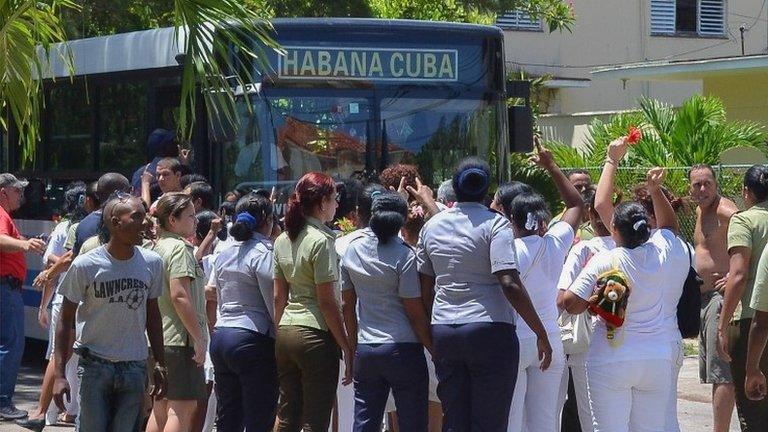Fidel Castro death: Cubans queue to pay their respects
- Published
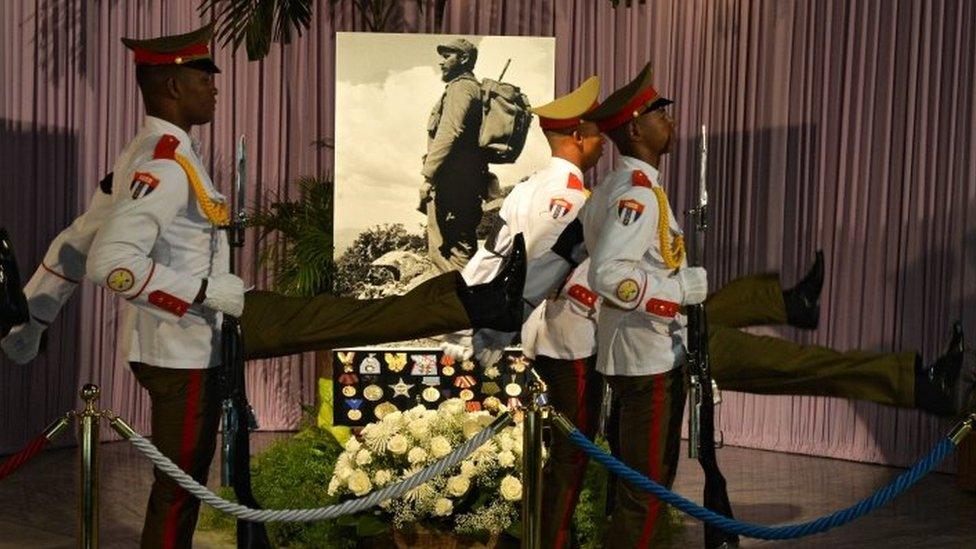
The urn is on display in the Jose Marti memorial in Revolution Square
Thousands of Cubans are paying their respects to the leader of the Cuban revolution, Fidel Castro, who died on Friday at the age of 90.
Long queues snaked around Revolution Square in the capital Havana, where mourners filed past a picture of the late leader holding a rifle.
It is the first public commemorative event during the nine days of mourning declared after his death.
The mourning period will end after his ashes are laid to rest on Sunday.
Castro's ashes were expected to be on display at Revolution Square but have instead been kept elsewhere.
'Soul of Cuba'
Some Cubans joined the queue before dawn to ensure they would be among the first to pay their respects.
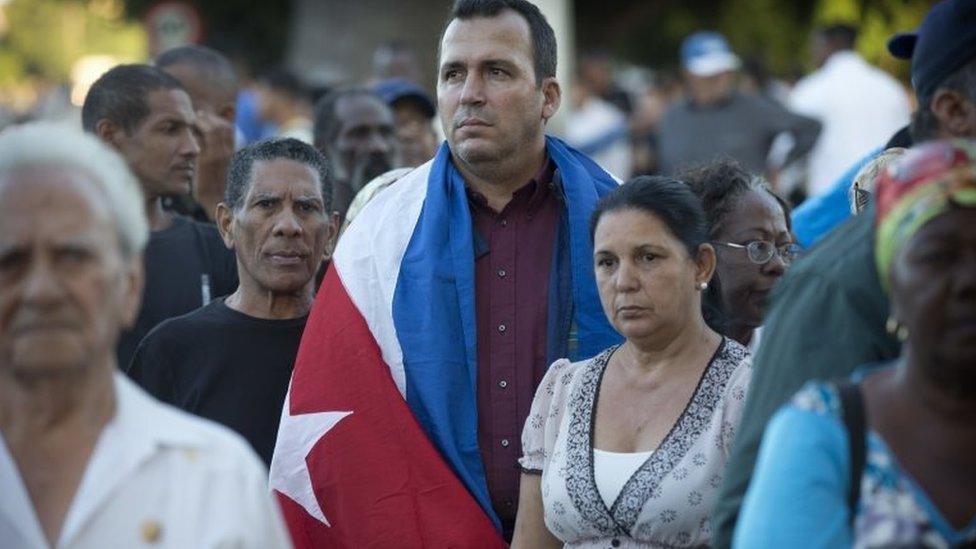
Thousands of Cubans are waiting to file past the urn
Fifty-three year old Tania Jimenez, a mathematician, told the Associated Press news agency that "Fidel is everything to us, the soul of this country who gave everything, all his life".
Castro came to power in 1959 and ushered in a Communist revolution.
Supporters say he returned Cuba to the people and praise him for some of his social programmes, such as public health and education.
But critics call him a dictator, who led a government that did not tolerate opposition and dissent, accused of numerous human rights abuses.
Towering figure
A nine-storey-tall portrait of Castro towered above those queuing to pay their respects, many of whom carried their own favourite photographs of the late leader.
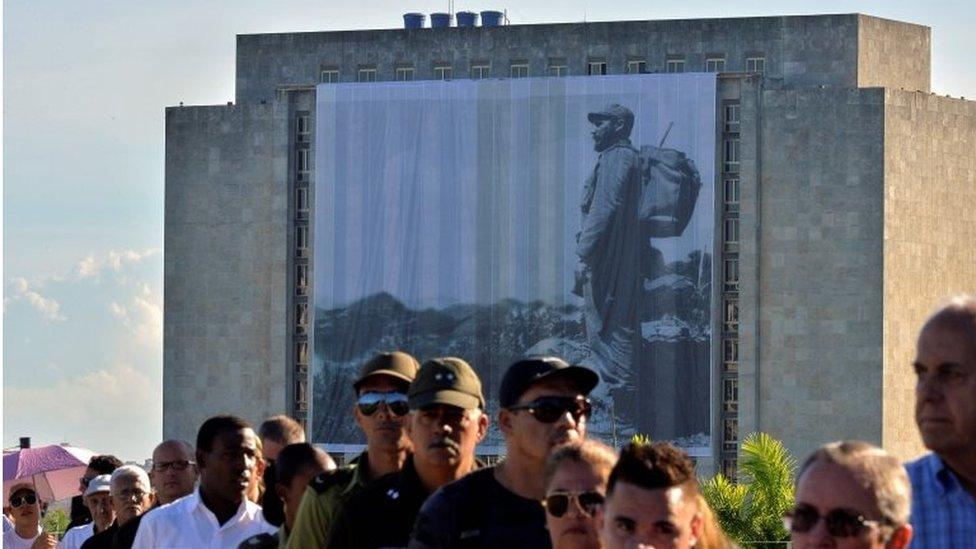
A photograph of Fidel Castro carrying a rucksack was on display in Revolution Square
Simultaneous 21-gun salutes were fired to mark the beginning of the public commemoration in Havana and the south-eastern city of Santiago de Cuba, from where Castro launched the revolution in 1953.
It contrasted with the subdued atmosphere which had prevailed after the announcement of Castro's death.
With concerts and sports events cancelled, some Cubans gathered to discuss the news but they were muted and reflective, the BBC's Cuba correspondent Will Grant said.
With the public mourning now under way, thousands are expected to attend the memorial event on Monday and on Tuesday in Havana.
'Solemn oath'
The place chosen is the memorial to Cuban independence hero Jose Marti located in the imposing Revolution Square.
Cuban officials said that mourners would sign "a solemn oath to comply with the concept of the Revolution expressed by our historic leader".
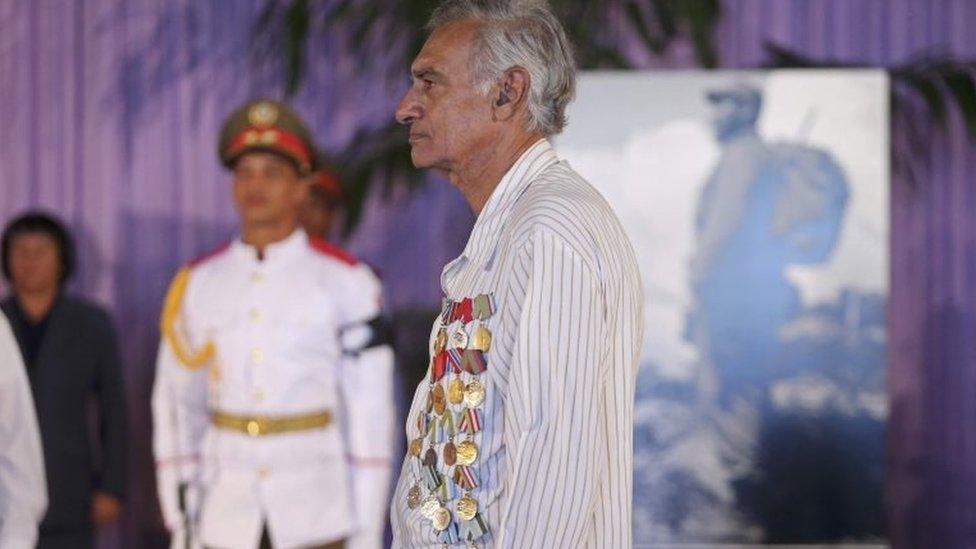
Cubans of all ages have been paying their respects
Revolution Square will also be the venue for a mass commemorative event expected to be attended by world leaders on Tuesday evening.
Bolivian President Evo Morales and Ecuadorean leader Rafael Correa, close allies of Cuba, have already confirmed their attendance and North Korea said it would send a delegation to the Caribbean island.
Russian President Vladimir Putin, who praised Fidel Castro as a "true and loyal friend of Russia", will not attend.
US President-elect Donald Trump, who has called Castro "a brutal dictator", will not be attending either.
He threatened on Monday to "terminate" the US-Cuba thaw seen under Barack Obama if the Cuban government did not improve the "deal" on offer.
On Wednesday, the ashes will begin a 1,000km-long journey to Santiago de Cuba, retracing the route Castro took during the Cuban revolution, only in reverse.
His ashes will be laid to rest on Sunday in the city's Santa Ifigenia cemetery, which is also the resting place of Jose Marti.
- Published27 November 2016
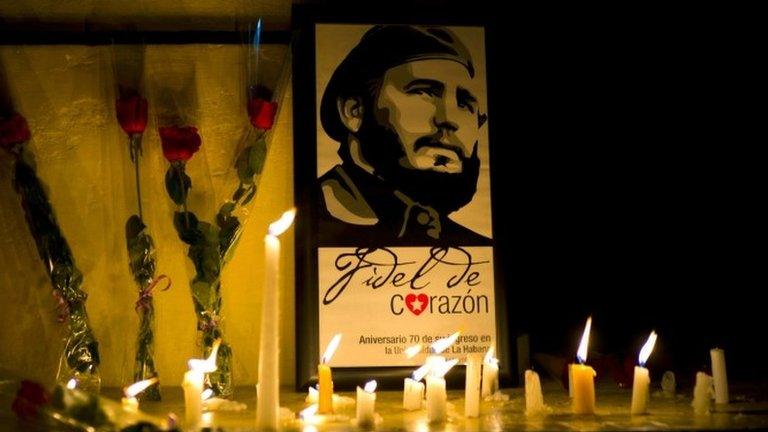
- Published26 November 2016
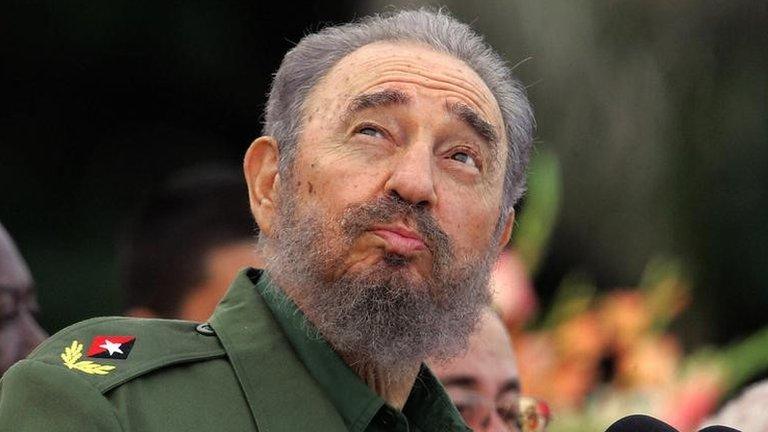
- Published27 November 2016
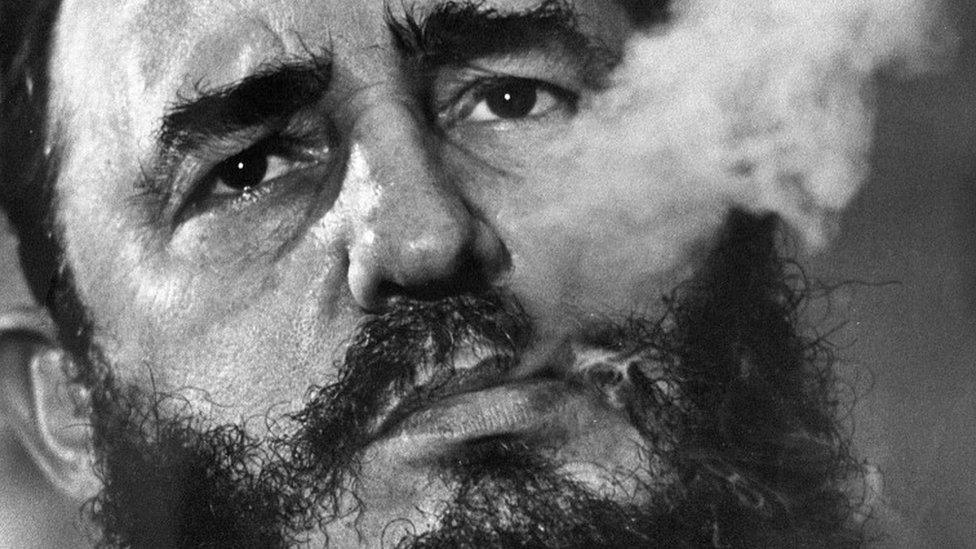
- Published26 November 2016
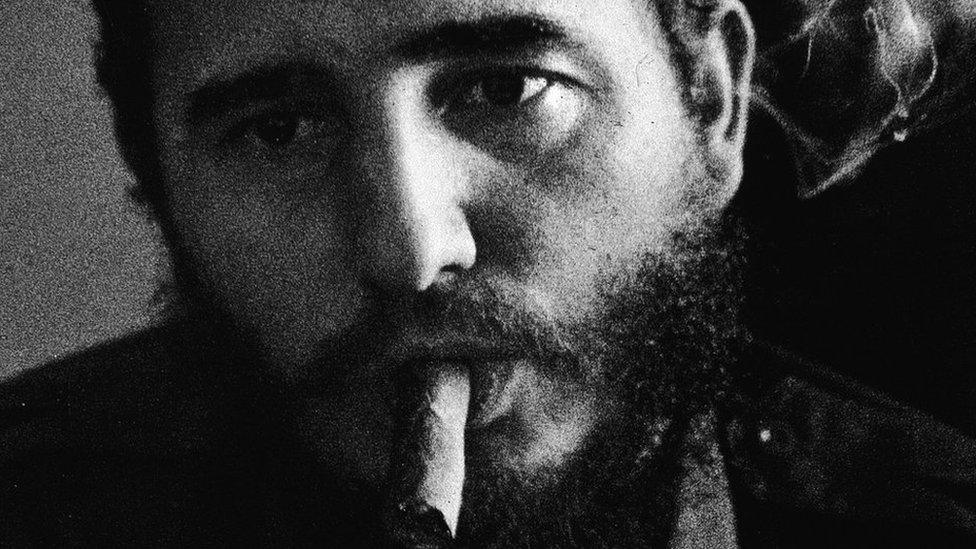
- Published14 July 2014
